Tag Archives bovine respiratory disease
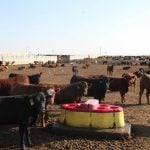
Cattle water bowls hold insight into animal health, antimicrobial resistance
Swabbing cattle watering bowls used in genomic testing to find antimicrobial resistance and look for bovine respiratory disease

Newly funded Canadian beef research aims for sector improvements
Nine beef research projects funded through the Beef Cattle Research Council will tackle stock health issues, feed efficiency and food safety.
Nine new projects have received a collective $1.43 million in funding through the Beef Cattle Research Council’s next call for study proposals. The projects are also backed by more than $3.1 million from additional sources, the organization has said. The BCRC says the projects are targetted at areas that will help maximize the impact of […] Read more
Antibiotic resistance rare in weaned calves
Western Canadian research study finds resistance in only two per cent of the weaned calves that were sampled
Glacier FarmMedia – If a new piece of western Canadian research is any indication, few weaned calves ready for the feedlot are carrying medication-resistant passengers. The project was focused on bacteria and viruses that can contribute to bovine respiratory disease (BRD). It found antimicrobial resistance (AMR) in just two per cent of sampled calves from […] Read more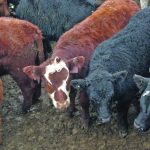
Respiratory disease linked to the gut
Scientists try to find out if giving calves a probiotic before they enter the feedlot will prevent bovine respiratory disease
WINNIPEG — Over the last decade, scientists and doctors have established a connection between gut health and brain health. They’re realizing that the community of bacteria within the intestine can influence mood, cognition, behaviour and other things that are normally associated with the brain. “The gut-brain connection is complex and bi-directional,” says the Cleveland Clinic […] Read more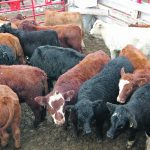
Study searches for respiratory disease answers
A research project will look at how to improve the use of existing vaccines to immunize calves before they enter feedlots
CALGARY — Scientists want to improve the ability of calves to resist bovine respiratory disease during a “perfect storm” in their lives when they are particularly vulnerable to such infections. Calves transferred to feedlots from cow-calf operations aren’t old enough to have a fully developed immune system, said John Ellis, professor of veterinary microbiology at […] Read more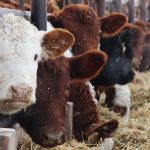
Microbiome helps understand bovine respiratory disease
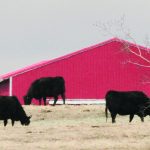
Anti-microbial resistance increases BRD challenge
Researcher hopes to better understand the spread of anti-microbial resistance to help improve management decisions
Dr. Emily Snyder, a researcher at the University of Saskatchewan’s Western College of Veterinary Medicine, is hoping her research will help address the issue.




